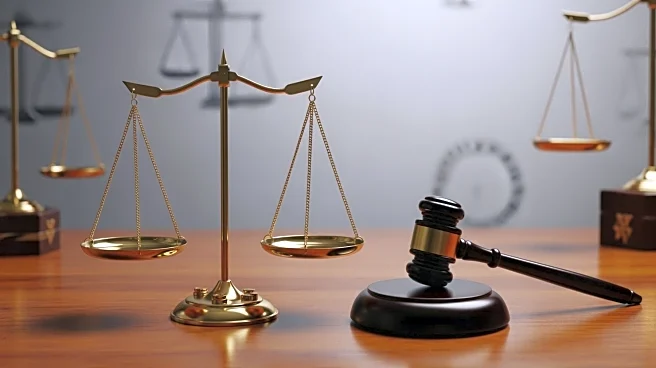What's Happening?
The Trump administration's appointment of two federal prosecutors is under legal scrutiny, with court challenges set to determine the validity of these appointments. The focus is on Lindsey Halligan, who replaced the top federal prosecutor in eastern
Virginia, and Alina Habba, serving in New Jersey. Halligan, a former insurance lawyer, was appointed after the previous prosecutor was forced out by President Trump. She quickly secured an indictment against former FBI Director James Comey, who is now challenging the legality of her appointment. Similarly, Habba's appointment is contested, with claims that her installation did not follow proper legal procedures. These challenges could lead to the dismissal of cases if the appointments are deemed invalid.
Why It's Important?
The outcome of these legal challenges could have significant implications for the U.S. justice system and the Trump administration. If the appointments are found invalid, it could result in the dismissal of high-profile cases, including those against James Comey. This situation underscores the importance of adhering to legal protocols in appointing federal prosecutors, which are designed to ensure checks and balances in the executive branch's power. The controversy highlights potential overreach by President Trump in bypassing traditional appointment processes, which could affect public trust in the judicial system and the administration's ability to enforce federal laws.
What's Next?
The courts will soon decide on the validity of these appointments, which could lead to significant legal and political repercussions. If the appointments are invalidated, it may prompt a reevaluation of other appointments made under similar circumstances. The Trump administration may face increased scrutiny and pressure to adhere to established legal procedures in future appointments. Additionally, the cases affected by these appointments may be delayed or dismissed, impacting the individuals involved and the broader legal landscape.
Beyond the Headlines
This situation raises questions about the balance of power between the executive branch and the judiciary. It highlights the potential consequences of circumventing established legal processes, which are designed to prevent unilateral actions by the president. The controversy may lead to discussions about the need for reforms in the appointment process to safeguard against political interference and ensure the integrity of the justice system.
















